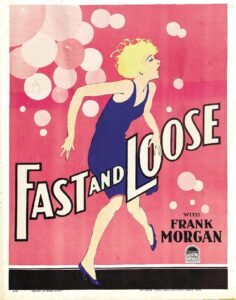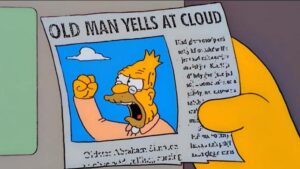
This time of year, we run the risk of inclement weather; conditions get so bad that we might have to delay opening the campus or even close things down for that business day.
So when the weather is dandy, why do we not speak of “clement” weather?
Our word has old roots, the Latin inclementem. A quick translation reveals “cruel,” something I don’t ascribe to a funnel-cloud. It’s simply indifferent to us and our desires, falling on rich and poor, young and old alike. Then again, we love to personify weather: bitter cold, into the teeth of the gale, the pitiless sun or, more happily, gentle breezes and rain.
Studying the OED entry, we find consistent usage from the 1600s. An 1621 example got used, ironically, for a human being, in “Pope Clement the fift, [fifth] was inclement and cruell.”
Our word of the week enjoys a frequency band of 4, meaning it occurs between .1 and 1 times per million words in modern English. Usage peaked at 1.2 per million words after 1810, beginning to taper after 1840. A minor uptick occurred after 2010.
Back to “clement” for a moment, meaning “mild or human in the exercise of power an authority; merciful, lenient, kindly” and associated with those in power. The OED cites an earlier first use than for its antonym, late in the 15th Century. Though it too has a frequency band of 4, the use of “clement” never rose above .6 per million, and today it hovers at just under .2. Weather also can be clement, but it’s rarely used to describe mild or gentle conditions. We do often speak of “clemency” when a prisoner is released or a sentence reduced.
I leave it up to the reader to consider if our increasingly inclement weather from climate change drives inclement leadership. I’d like to see both trends reverse.
If you have a word or metaphor you enjoy, send them by e-mail (jessid -at- richmond -dot- edu) or leaving a comment below.
See all of our Metaphors of the Month here and Words of the Week here.
image: photo by me, Kenmare, Ireland, 2011: a break in inclement weather!











